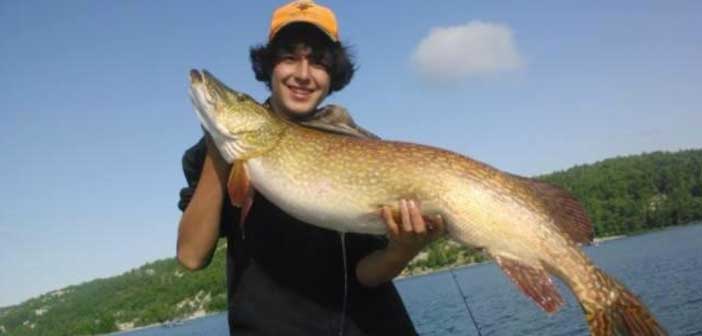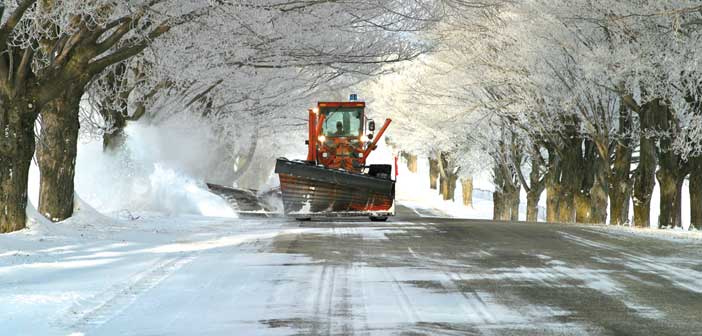KAGAWONG—The United Fish and Game Clubs of Manitoulin (UFGCM) is calling on the Ministry of Natural Resources and Forestry (MNRF) to support and accept the development of a master plan to rebuild lost fisheries on the Island, which would include a rezoning and regulatory changes for Manitoulin, fish restocking programs and other necessary measures and to include and take in the area from Cape Roberts to Walford and East to Little Current.
“The inland lakes all over the Island are in trouble, and in five to 10 years there won’t be any more fish left if nothing is done,” stated Al Holroyd of the UFGCM at a meeting last week.
Club members have met with MNRF representative Derrick Luetchford, who is very interested in the work being done by the UFGCM and Gore Bay Fish and Game Club. “He seems very interested in everything the club is doing and is going to set up a meeting for us at the Blue Jay Creek Fish Culture Station.”
Mr. Holroyd stated, “we need to emphasize we need to get the go ahead for the Gore Bay Fish Hatchery to raise pickerel and for the MNRF to tell us how we can get this started or why we can’t do this. Currently the hatchery (which raises Chinook salmon) sits idle for six months of the year. We need a rezoning of the Island for Manitoulin to be a separate fisheries zone on its own. The fish limits in Lake Mindemoya for example are crazy, I see this at my resort (Cedar Grove Cottage Resort) and things have to change or there will be no fish left.”
“I agree the fishery will collapse without changes, it can’t sustain the current angling and gillnetting pressures,” said club chairman Jim Sloss.
Jack Hayes pointed out that one of the problems that came about years ago was that some tourist operators at the time convinced the ministry not to stock pickerel in Lake Mindemoya and they agreed.
“I see guys taking loads of fish and this isn’t including the ones they take home. I would hate to guess what actually is taken out of the lakes, fishermen can abuse the fish limits, and our lakes can’t sustain this,” said Mr. Holroyd. He said it is important for Manitoulin to be recognized as a separate fisheries management zone, so necessary changes can be made to sustain and enhance the fisheries.
“I think things are critical now and have to start now to get things turned around,” said Mr. Holroyd. “All our lakes are in trouble and it is sad to see.”
“I do agree the lakes around the Island are in trouble,” said Mike Meeker.
Mr. Sloss pointed out the Gore Bay hatchery should be used the entire year to raise fish.
“This upcoming meeting is important,” said Mr. Holroyd. For instance, we need to be able to raise other species of fish (besides salmon) in the Gore Bay hatchery.”
It was pointed out by one club member that if at some time the hatchery can raise pickerel or other species of fish the MNRF will also want some stocked in the North Channel.
“We can’t just forget the North Channel,” said Mr. Sloss, who pointed out regulations can be looked at for change and restocking efforts can be expanded.
It was suggested, as had been the case a few years ago, the UFGCM could lobby for Manitoulin being included in its own management zone.
Mr. Sloss noted that around 1990 the UFGCM had put together a fisheries management plan for Manitoulin Island that is still “pretty much” relevant today.
“We can start with our meeting with the MNRF representatives and then get a meeting with our MPP (Mike Mantha), and if we still haven’t received the answers we want then we should have a delegation go to Queen’s Park,” stated Mr. Holroyd.
The MNRF has carried out very few creel census studies on area lakes so they can’t determine how many fish are being taken out of area lakes, said Mr. Meeker.
“They (MNRF) know the problems our lakes are having in terms of fish populations,” said Mr. Holroyd, “and if the day comes that people can’t catch fish in our lakes, they will just move on. We need a program in place for inland lakes that provides some protection for the fish to enhance the fisheries.”
Mr. Meeker said, “an adaptive management plan needs to be in place that shows, for instance, how many fish can be taken out of a lake without it being in trouble. And there needs to be stocking done (by the province). There is no country in the world that doesn’t have fish stocking programs, and if the ministry doesn’t have the money or manpower to do it, let the local groups raise and stock fish. For instance the Little Current (Fish and Game Club) guys are doing a fantastic job.”
“I agree, our lakes are in big trouble, and stocking heavily is one of the ways that can make a huge difference,” said one member of the club.
“The idea is to try and get a separate fishing zone created to provide more protection for fish stocks and have changes made to provide a better opportunity to rebuild lost stocks of fish,” added Mr. Sloss.





